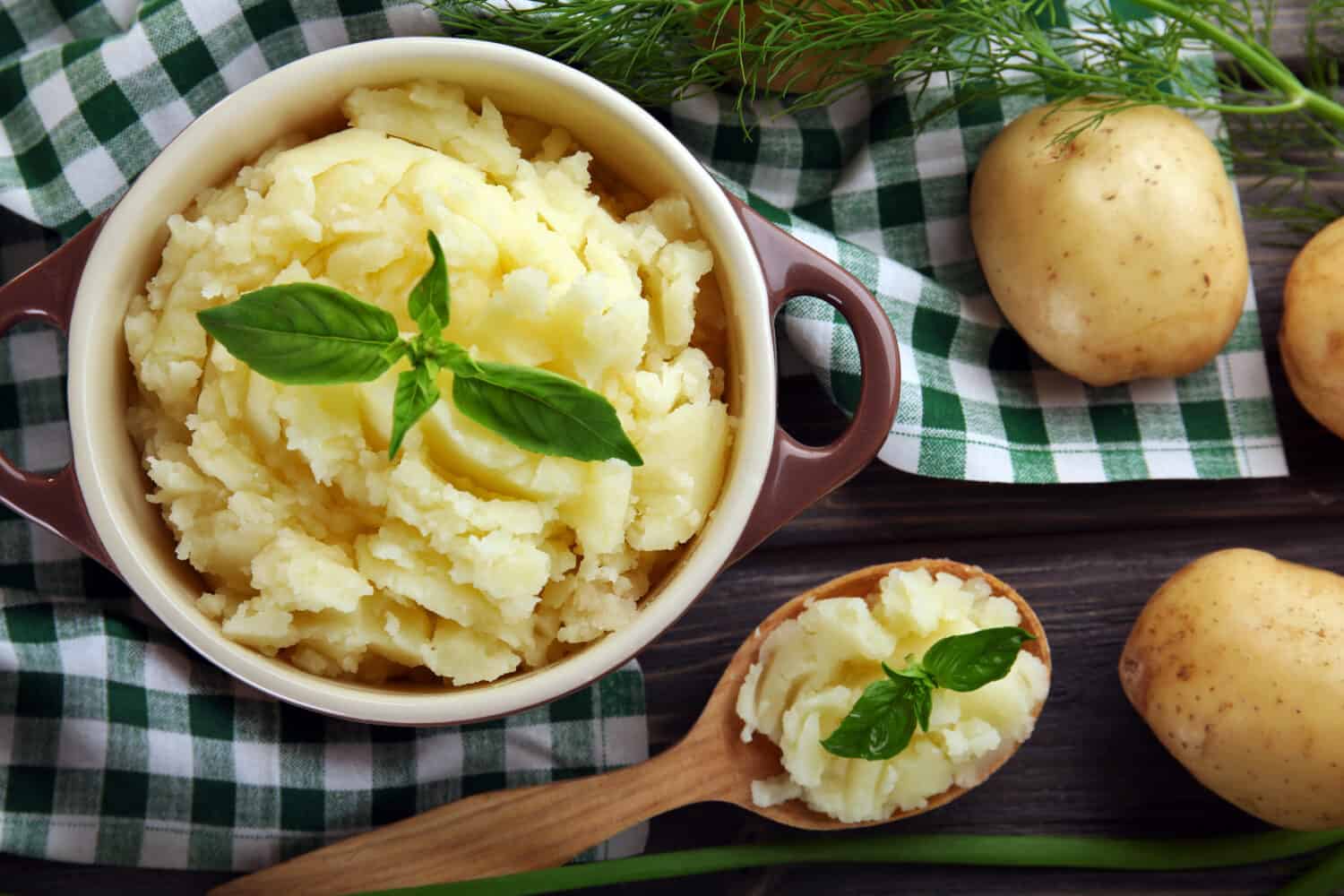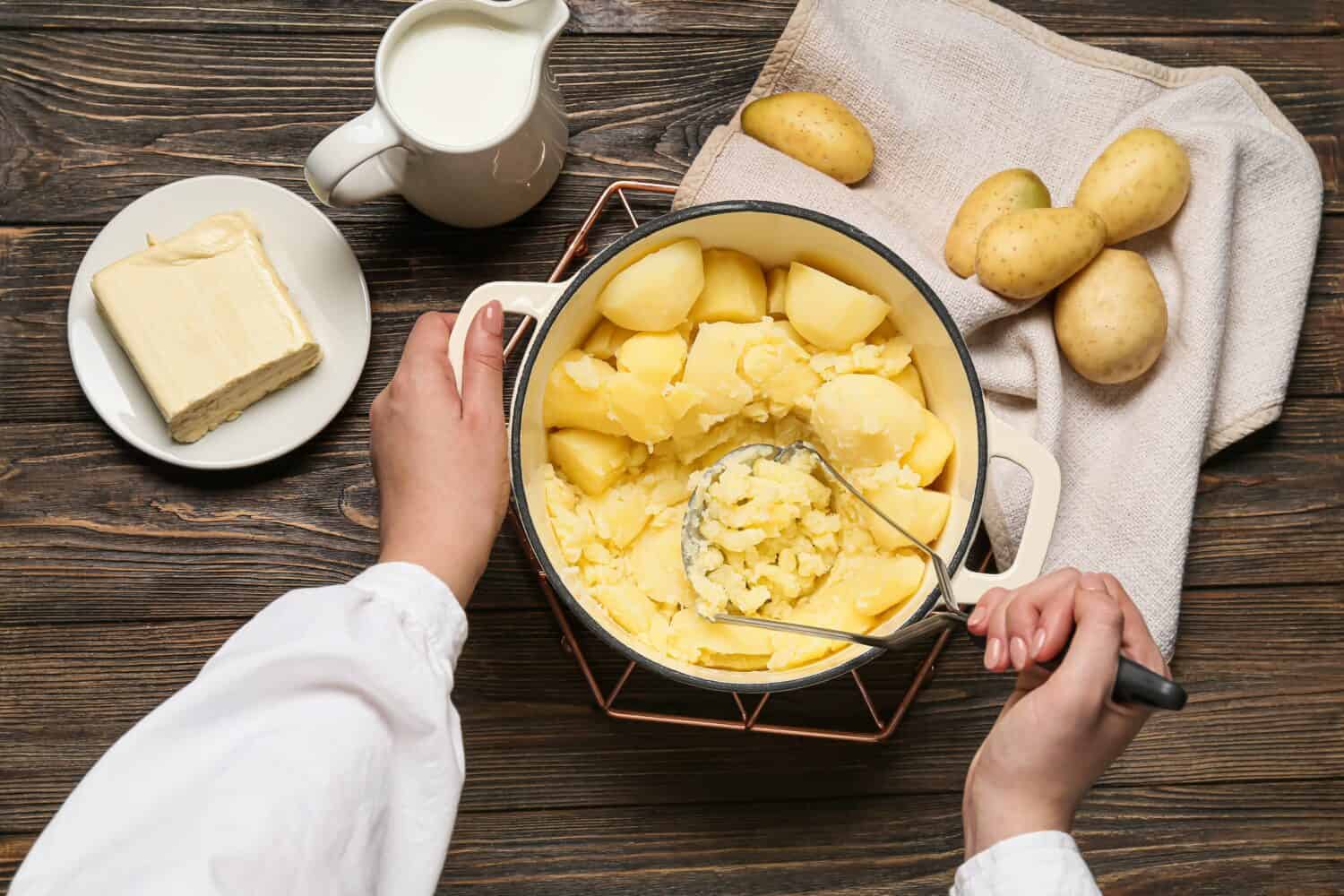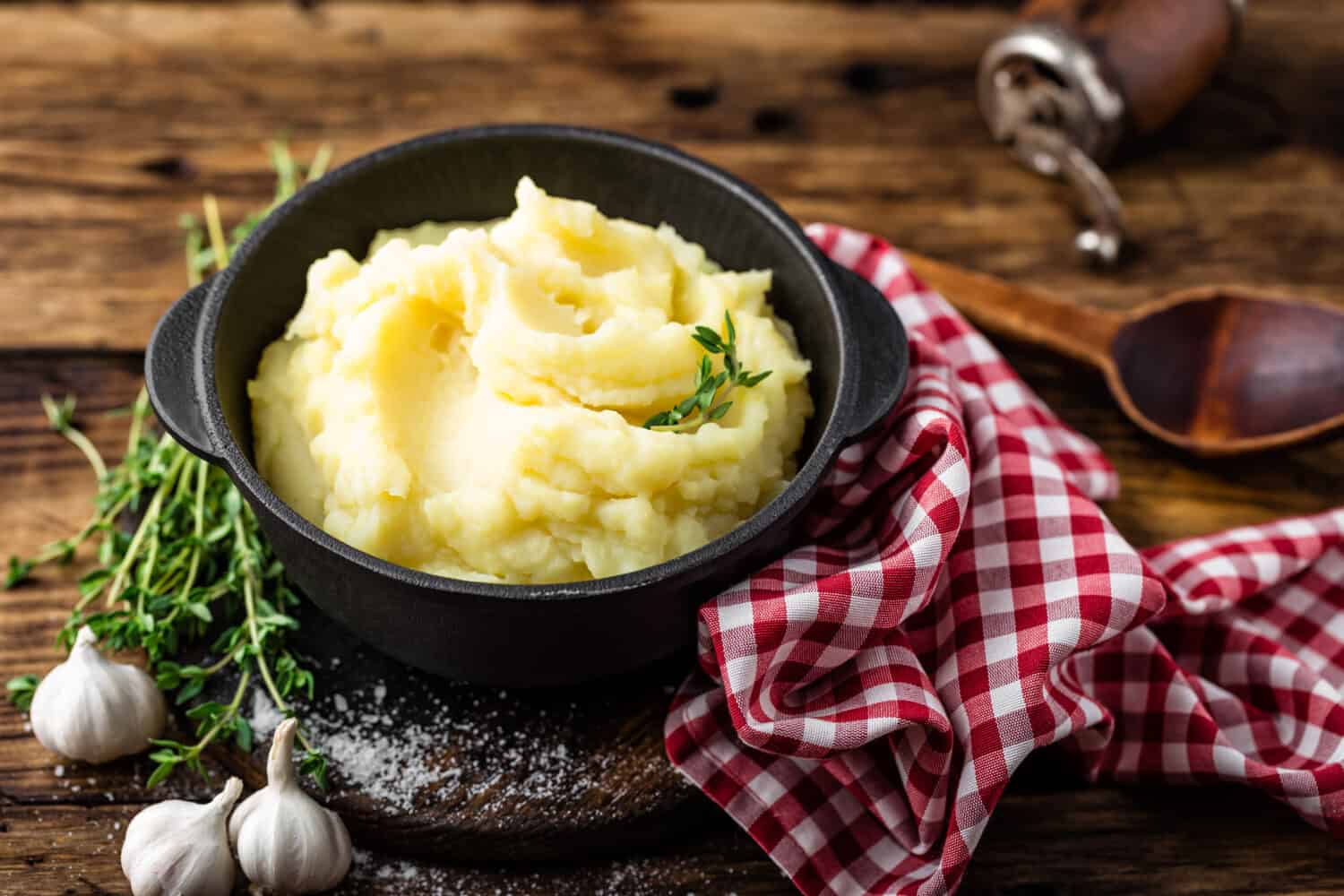Whether sitting alongside the Thanksgiving turkey, accompanying a meatloaf, drenched in gravy, or standalone, mashed potatoes have long been a nostalgic staple of the American diet. And they aren’t solely beloved in the United States. A traditional shepherd’s pie, for example, which originated in 17th-century Ireland, also relies heavily on mashed potatoes. And the first recorded mashed potato recipe came from England in 1747. Ironically, in the years prior, potatoes were thought to cause leprosy, so it's a wonder we even found our way to the mashed potatoes we know and love today. Nevertheless, they're an international go-to when it comes to side dishes. They’re certainly tasty, but are mashed potatoes healthy for us? As it turns out, the answer lies in how you prepare them. Let’s look at the science behind it!

Mashed potatoes are a longstanding mealtime favorite. But are they healthy? Let's find out! Image: Africa Studio, Shutterstock
©Africa Studio/Shutterstock.com
What are Mashed Potatoes, and What Do They Taste Like?
Before we go any further, let’s talk about what constitutes true “mashed potatoes.” According to the good old Merriam-Webster Dictionary, mashed potatoes are defined as “potatoes that have been boiled and then made into a soft mass by crushing and beating.” Of course, they often have other ingredients mixed in for flavor and consistency, such as butter, sour cream, and milk.
Additionally, the type of potato used to make mashed potatoes can vary. Less starchy potatoes are best, leading most to use Yukon Gold, Russet, or Idaho potatoes.
The flavor profile of mashed potatoes can run the gamut, and there are plenty of people who would gladly debate factors such as smooth versus chunky, skin-on versus skin-off, and classic mashed potatoes versus those loaded with garlic or herbs. But one thing is clear: they are delicious! Plus, they offer an incomparable nostalgic factor. For many of us, they are a direct link to our childhoods.

Most often served as a side dish, mashed potatoes offer a hearty accompaniment to everything from chicken and pork chops to steak. Image: Hihitetlin, Shutterstock
©Hihitetlin/Shutterstock.com
What are the Health Benefits of Mashed Potatoes?
While a longstanding myth suggests that all white foods (such as potatoes) have little health benefit, that isn't entirely true. The health benefits of mashed potatoes largely exist in the potato nutrient content — mashed potatoes are a great source of vitamins, minerals, potassium, and fiber. Plus, potatoes are low in calories, and they possess no fat, cholesterol, or sodium. Let's break down the benefits of specific vitamins in mashed potatoes:
- Vitamin A: Vitamin A is an antioxidant that protects your body against free radicals and supports everything from immunity and vital organ function to vision health and reproduction.
- Vitamin B: Vitamin B helps us metabolize our food into energy, and potatoes are a decent source of B vitamins such as B6, niacin, and thiamin. These aid our nervous and muscular systems and contribute toward healthy skin and hair growth.
- Vitamin C: Potatoes are very rich in vitamin C, which, like vitamin A, is also an antioxidant. In fact, they contain more vitamin C than a tomato! (Interestingly, a good rule of thumb is that the darker the potato, the more antioxidants it possesses.) Supporting the immune system and the body's collagen production, potatoes have long been a staple part of most country's diets. In the 16th to 19th centuries, when many sailors were afflicted by scurvy while at sea (which was very prevalent due to going months at a time without fruits and vegetables), potatoes became a major source of preventing the disease. It's worth noting, however, that high temperatures and long cooking times drastically reduce the amount of vitamin C in potatoes.

How mashed potatoes are prepared has a significant impact on how healthy they are. Image: Pixel-Shot, Shutterstock
©Pixel-Shot/Shutterstock.com
What are the Health Disadvantages of Mashed Potatoes?
From a health benefits standpoint, the downfall of mashed potatoes doesn't really have much to do with the potatoes themselves — it's all about the additions. In combination with copious amounts of butter, milk, cream, or sour cream (or even cheddar and bacon), the potatoes take on a higher level of calories and fat. Not to mention, sodium levels can rise significantly from the addition of salt. To maintain a healthier version of mashed potatoes, the trick is substituting ingredients like sour cream with Greek yogurt and cream with skim milk or even almond milk.
Important Takeaways
- Mashed Potatoes are a nostalgic staple of the American diet; they are also part of many international dishes.
- Typically, Yukon Gold, Russet, or Idaho potatoes are used for mashed potatoes due to less starch.
- They are a great source of vitamins, minerals, potassium, and fiber.
- The health disadvantages of mashed potatoes largely depend on additions in the cooking process, such as butter, sour cream, and heavy cream.
Up Next:
- Oven Fried Pork Chops and Mashed Potatoes Recipe
- Rice vs. Potatoes: Differences in Nutritional Values and Best Ways to Cook Them
- Pork and Potatoes with Tomato Relish Recipe
The image featured at the top of this post is ©Sea Wave/Shutterstock.com
